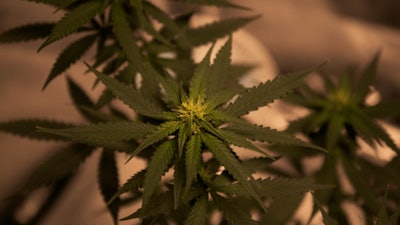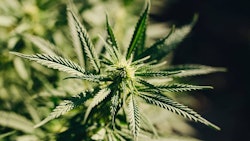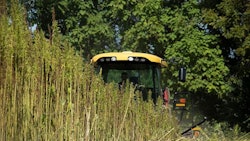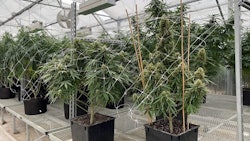
According to a January Hemp Benchmarks report, leaders in the hemp industry predict that the 2021 growing season will be characterized by more stability, along with an increase in the grain and fiber sectors.
The price for CBD biomass continues to stabilize, as prices remained steady for January, according to the Hemp Benchmarks report, while rates for extracted CBD products decreased this month.
Further stability this year could be driven by the federal regulatory environment. Advocates of the industry suspect the Biden Administration may be more supportive of the developing hemp sector compared to previous administrations, which could create a more favorable regulatory environment for the hemp industry this year, Hemp Benchmarks said in an email.
Additionally, the USDA issued its final rule on hemp in mid-January, which also could create a sense of stability for the hemp industry. The report states the final rule contained changes that addressed several of the industry's concerns with the previous interim final rule. The final rule will replace the USDA's interim final rule and will take effect on March 22.
Other Pricing
The only product category in the report to see a consistent year-over-year increase is a calculated price for smokable CBD flower, which grew for the second straight month in a row, the report states.
Additionally, the report shows prices for CBD and industrial hemp seeds and clones rose this month, ahead of this year's planting season; however, the prices for all genetics types were still reported lower compared to this time last year.
"Some market participants are reporting increased interest in CBD hemp from farmers this year, and at least one major grain hemp processor is looking to expand contracted acreage," Hemp Benchmarks said. "However, high prices for traditional row crops could entice farmers to plant more corn, soybeans, and wheat in 2021 and suppress acreage devoted to hemp.”
2020 Harvest Assessment
The report states that the harvest assessment consists of reports from state agriculture departments and cultivators regarding their final numbers for the 2020 growing season, which concluded that the total acreage licensed for hemp in the U.S. dropped by 30 percent from 590,000 acres licensed to 400,000 in 2020.
Based on this data, Hemp Benchmarks estimated that 85 percent of U.S. acreage was used for CBD and other cannabinoid production, which amounts to between 119,000 and 136,000 acres devoted to CBD and other cannabinoid hemp, the report states.
"Hemp Benchmarks' preliminary estimate of CBD and other cannabinoid biomass production in 2020 is 50 million to 60 million pounds,” Hemp Benchmarks said. "We expect that the amount of biomass harvested successfully last year was higher, but that some will go to waste due to low CBD potency and storage issues. Our estimate of 2020 CBD/cannabinoid biomass production is just over half our estimate for 2019, which was 90 million to 112 million pounds."
Processing & Extracted Product Sales Update
According to the report, delta-8 THC currently appears to be the fastest-growing product in the hemp sector. Still, although the popularity of delta-8 THC is increasing, Hemp Benchmarks observed the prices are declining.
"Increasing demand for delta-8 THC is reportedly helping drive sales of some wholesale CBD products, delta-8 THC is frequently manufactured from CBD isolate, but trading volumes of delta-8 THC remain small relative to CBD product trading volumes,” Hemp Benchmarks said.
Transportation Updates
Hemp Benchmarks also found that international exports of smokable CBD flower have increased significantly since 2019, with most exports destined for buyers in Canada, Europe and some in the Middle East and Africa.
The majority of the Europe-bound smokable hemp exports are destined for Switzerland, the report states.
"While exact prices were unable to be revealed by sources, Swiss buyers reportedly pay a premium relative to domestic rates," Hemp Benchmarks said.
























